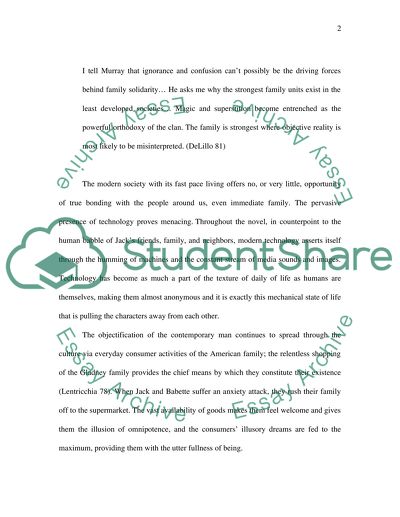Cite this document
(“The Disintegration and Re-integration of the Family. Don DeLillos Term Paper”, n.d.)
Retrieved from https://studentshare.org/literature/1423116-the-disintegration-and-re-integration-of-the-family-don-delillos-novel-white-noise
Retrieved from https://studentshare.org/literature/1423116-the-disintegration-and-re-integration-of-the-family-don-delillos-novel-white-noise
(The Disintegration and Re-Integration of the Family. Don DeLillos Term Paper)
https://studentshare.org/literature/1423116-the-disintegration-and-re-integration-of-the-family-don-delillos-novel-white-noise.
https://studentshare.org/literature/1423116-the-disintegration-and-re-integration-of-the-family-don-delillos-novel-white-noise.
“The Disintegration and Re-Integration of the Family. Don DeLillos Term Paper”, n.d. https://studentshare.org/literature/1423116-the-disintegration-and-re-integration-of-the-family-don-delillos-novel-white-noise.


